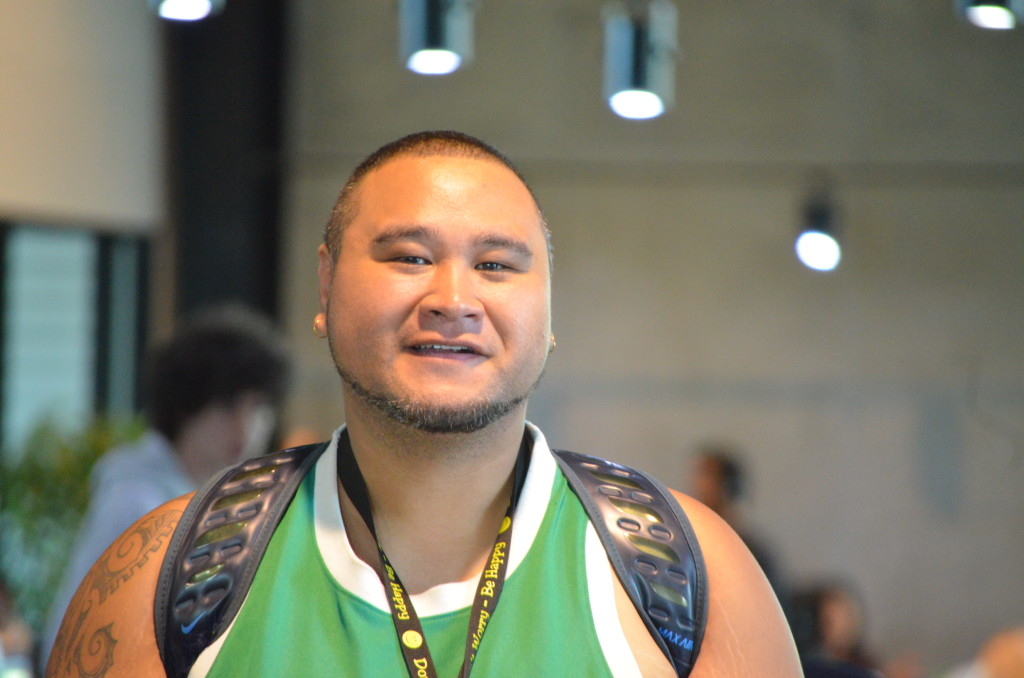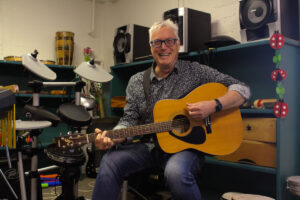Voter calls for more power to musicians and wardens to help his community
Musician Anaru Williams believes less is more when it comes to policing his local community.
Anaru Williams, known by many as “Chingy”, is a musician who treasures his Māori heritage.
Williams has ties to Ngāti Maru, Te Ati Ara, Taranaki, Ngāti Ruanui, Ngāti Porou, Ngāti Kahungunu, and Tūhoe.
He lives in a community to which he gives a lot of his time, because he cares.
And he voted.

Williams believes that the New Zealand Government has the ability to help him and his local community in two specific ways, and hopes that there will be some changes following the recent general election.
Perhaps through a government agency that has already received significant funding as an outworking of National’s accord with the Māori Party, Williams would like financial assistance to be given to help develop musical skills among the people in his community, and to help talented, aspiring hip-hop artists enter the industry.
“We have a lot of musicians, but there’s no avenues for them to emerge.”
Prior to the election, Williams attended a political meeting for the Hauraki-Waikato electorate.
A disturbing disparity he sees between ways that Māori are treated by police when compared with other ethnic groups, and concern for predominantly Māori communities, motivated Williams to ask political candidates what they think can be done to enhance relationships between community constables and residents.
If their ideas are turned into action, Williams thinks things could be better for his community.
“We need to focus on the Māori wardens a lot more.”
Williams believes there should be a shift of power so as to more greatly empower Māori wardens, rather than police, and that there should be an increase in involvement between the police and wardens.
“Where society is heading, there’s more brutality. They’re probably going to arm the police. You know, ‘Shoot first. Ask questions, later.’
“That’s the general direction in which it’s heading.
“So, we need to actually do something about it.
“You know, hit the nail on the coffin, and then you give Māori wardens a lot more power, because that’s who Māori can see and reflect with the wardens.
“The wardens have a relationship with other Māori, so we need to disarm police and give the Māori wardens more power.
“We can reduce a lot of crime, and our people going [to prison], and things like that.
“When we have police in communities, that’s okay, but when we put police, like, down at the Frankton markets, you know, we had Mongrel Mob, we had Black Powers all coming down.
“Everyone was based on getting together, our Māoritanga, our manaakitanga, you know, everyone would come down for a feed, but when they put police in the mix, that’s when shit happens, and then our people end up going to jail.
“You know, this has been happening for a long time, so if we can take them out of the mix and put a warden in there, our people, you know, can communicate and relate to the wardens a lot better than police.
“The response, you know, the response from each party is different.
“So, if we can get a lot more power to our wardens, then that should reduce a lot of the crime, a lot of our people going through the justice system, the adults and the kids.”




